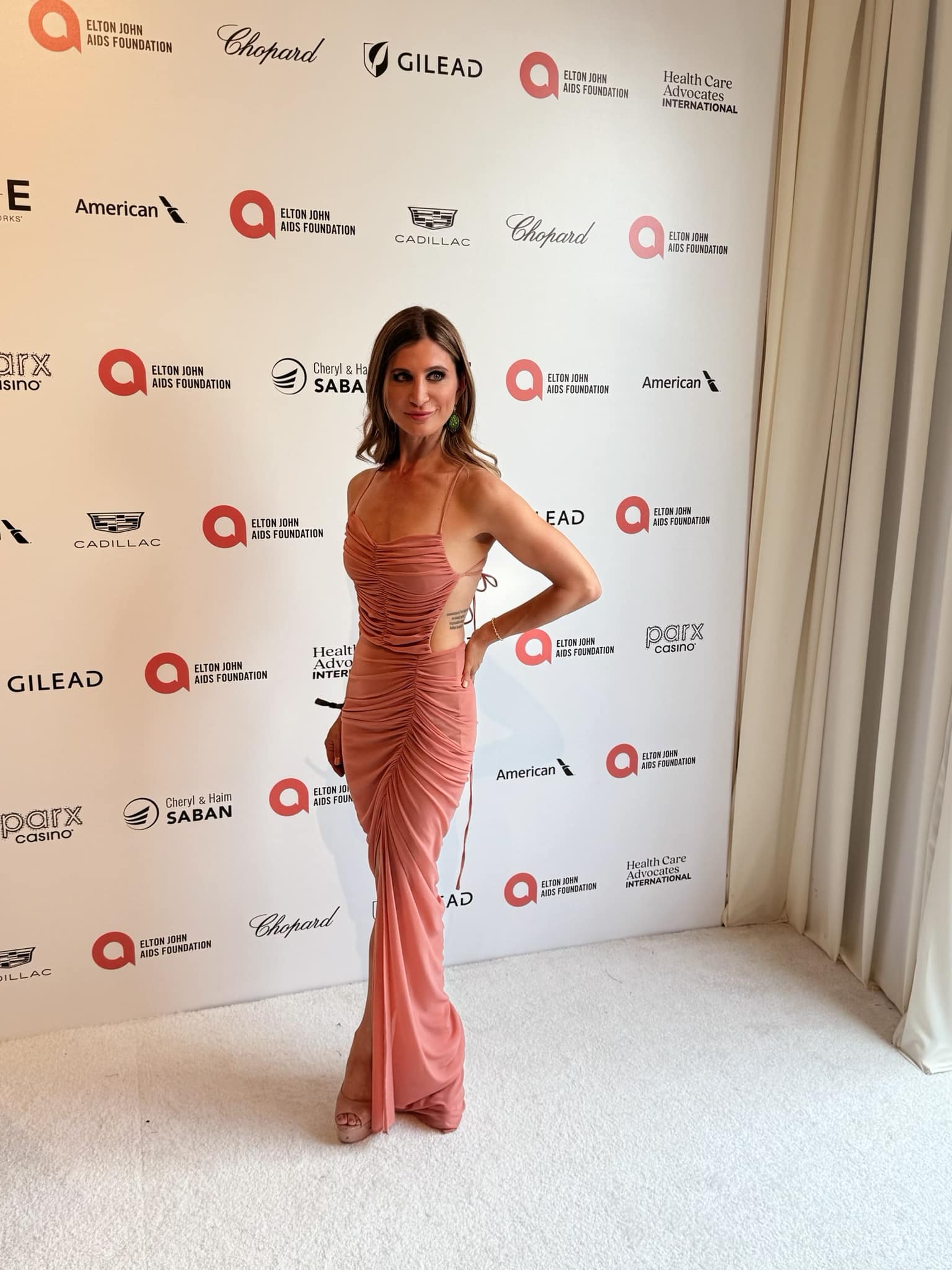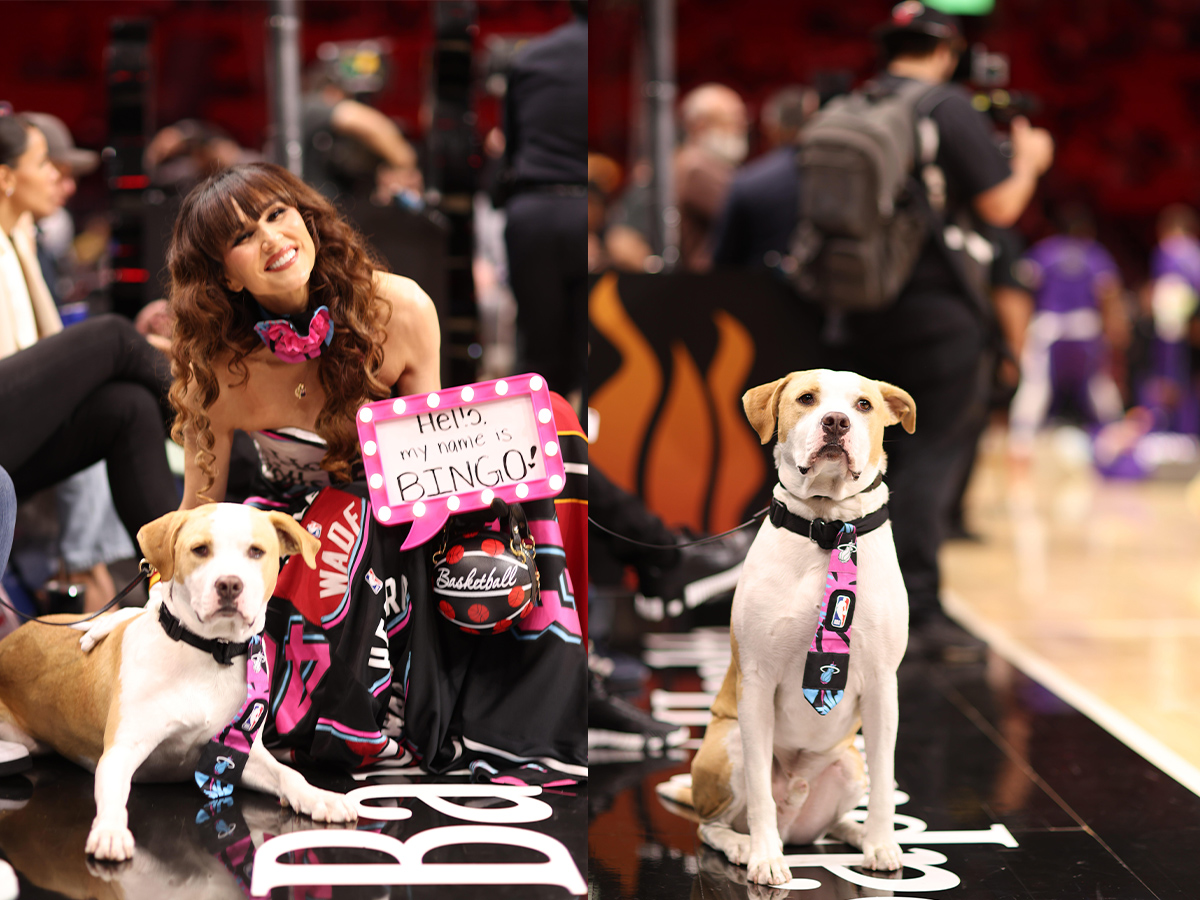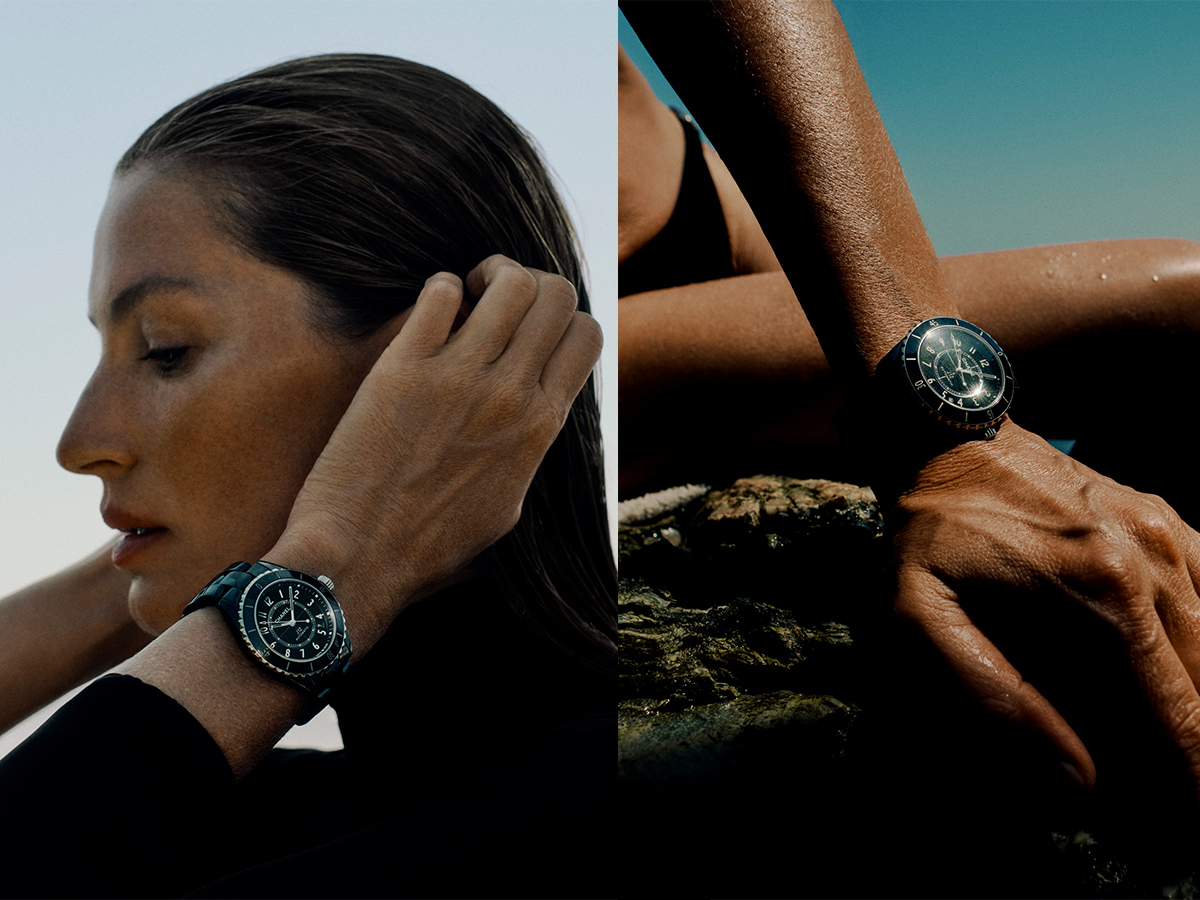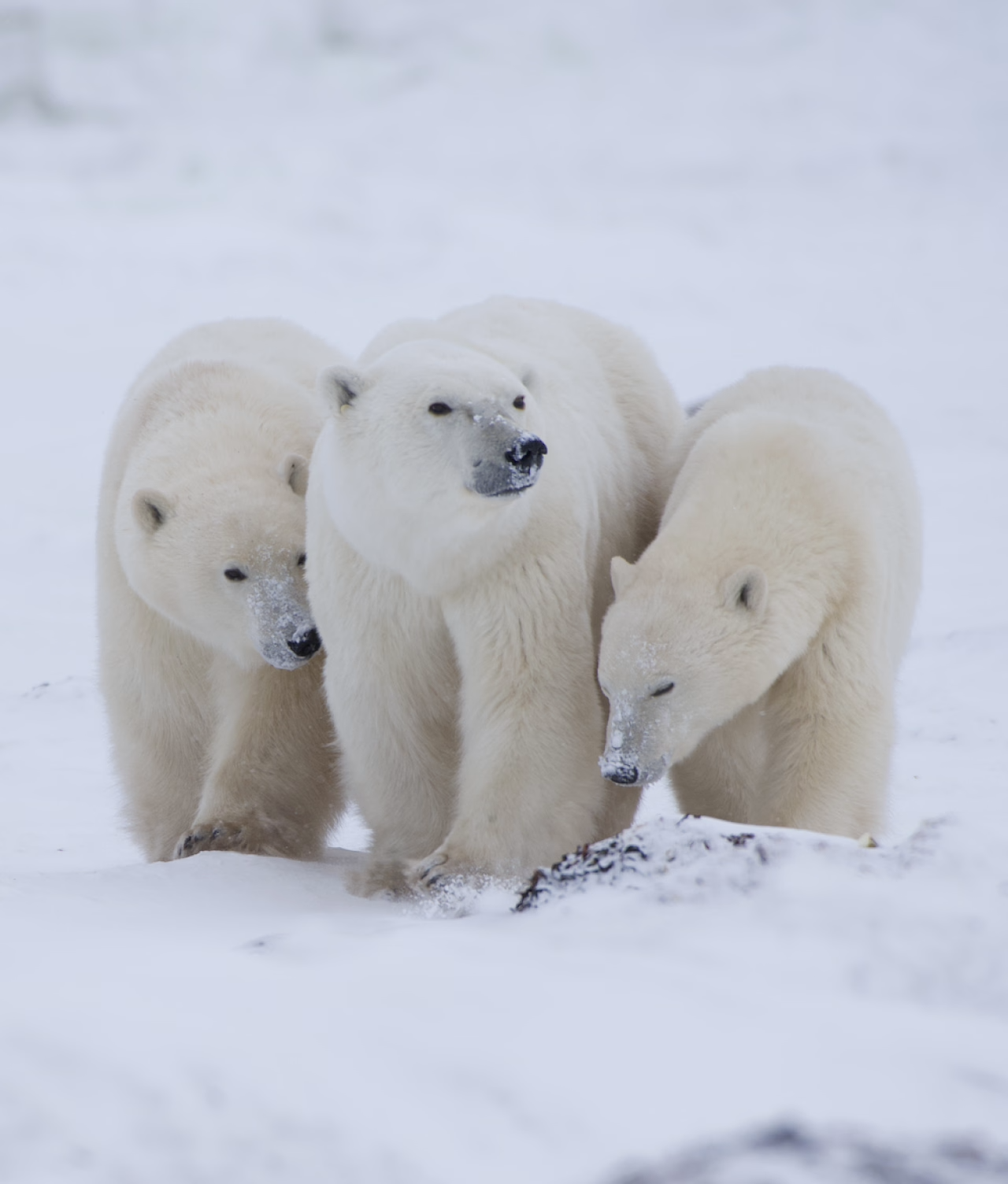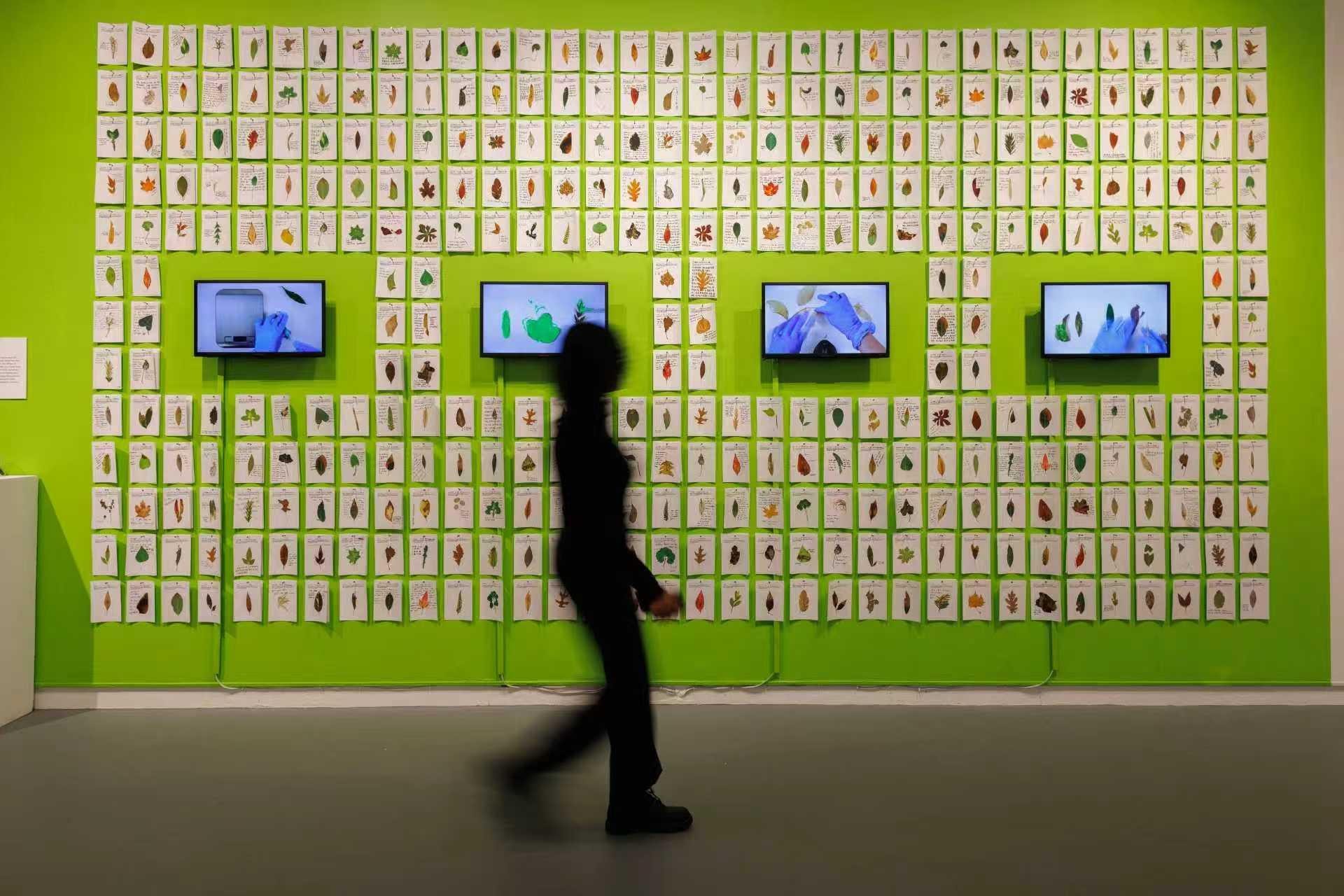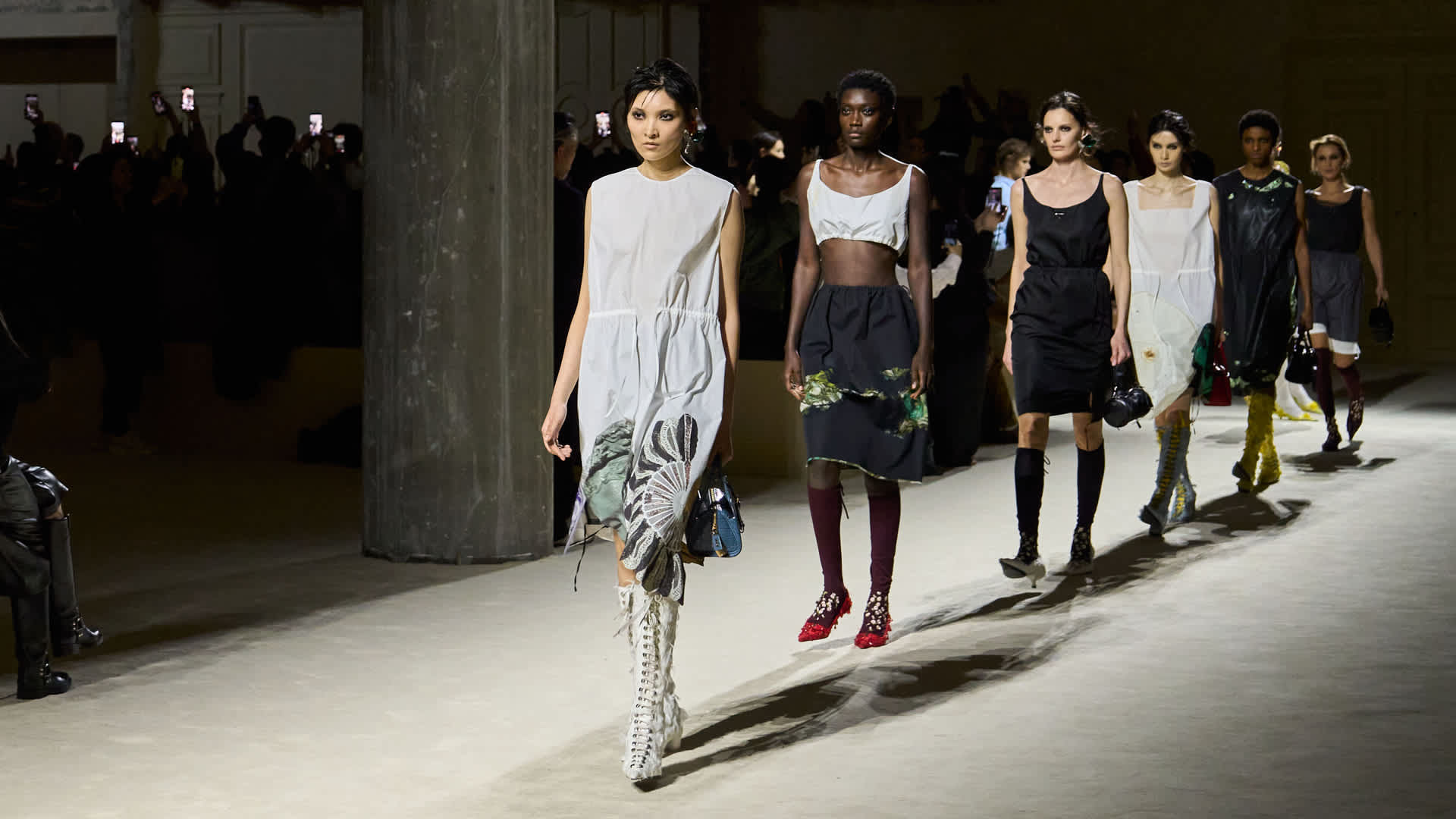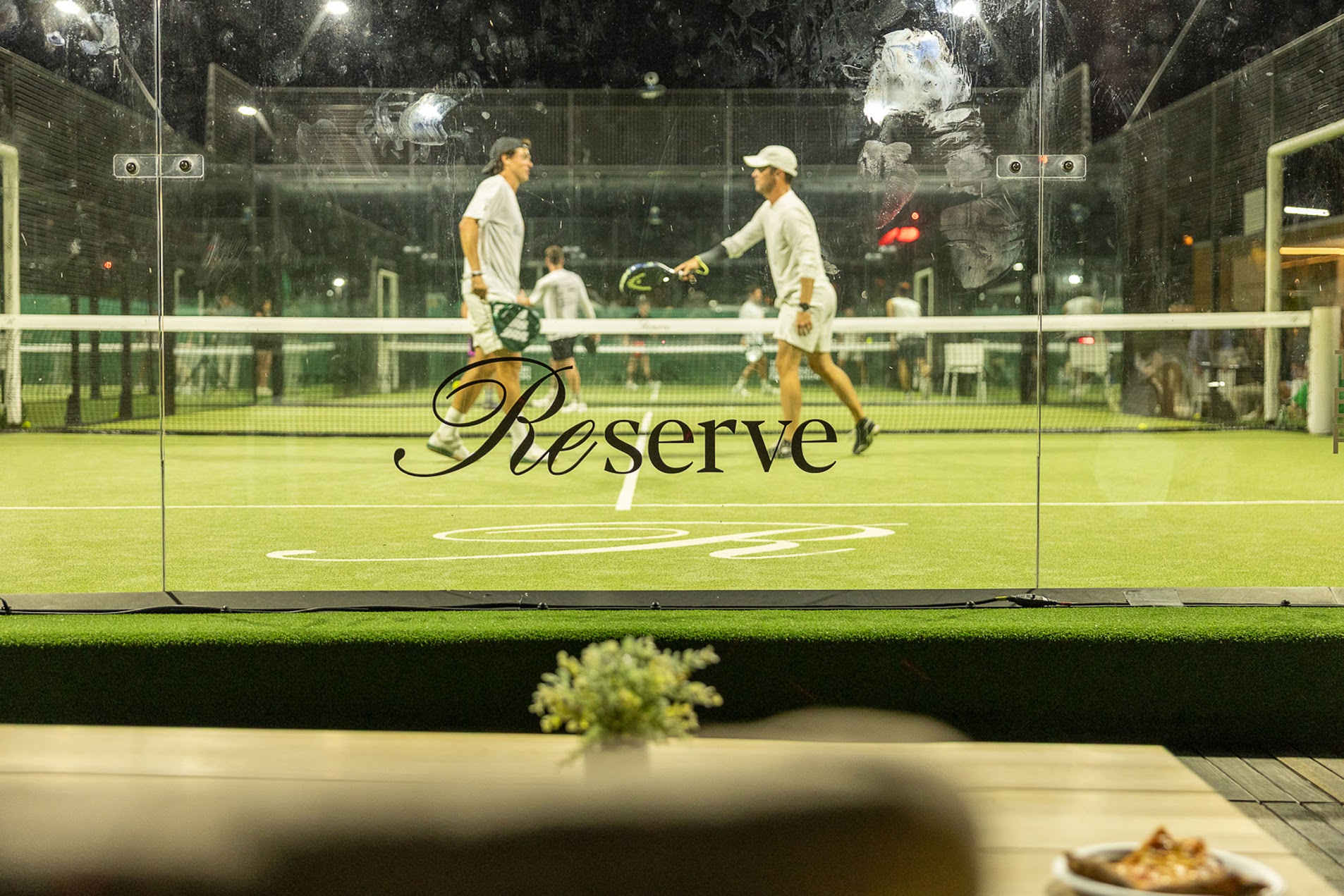Iconic Beauty Isabella Rossellini On Sex, Consequences & The Demise Of Ageism
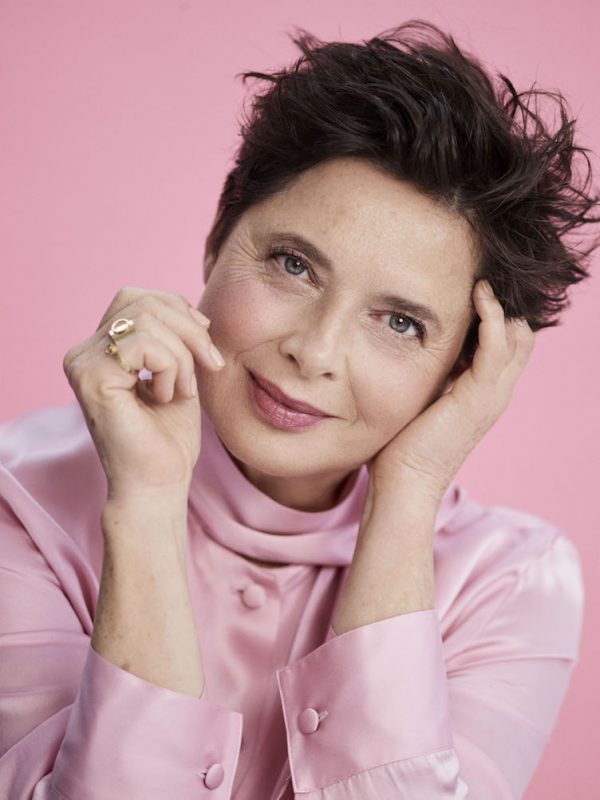 Photo Credit: Nico Bustos for Lancôme
Photo Credit: Nico Bustos for Lancôme
Isabella Rossellini has been making the most of the pandemic. The longtime Lancôme ambassador, actress, author, philanthropist and former model has been spending time at her farm, an hour outside of Manhattan in Bellport, Long Island, working on Sex & Consequences, her 40-minute comical but scientifically accurate show on biodiversity and the multiple ways animals reproduce and have “babies.” We chatted with Rossellini about the impetus for her show, why she dislikes the phrase “aging gracefully” and how she combatted ageism in the best way possible.
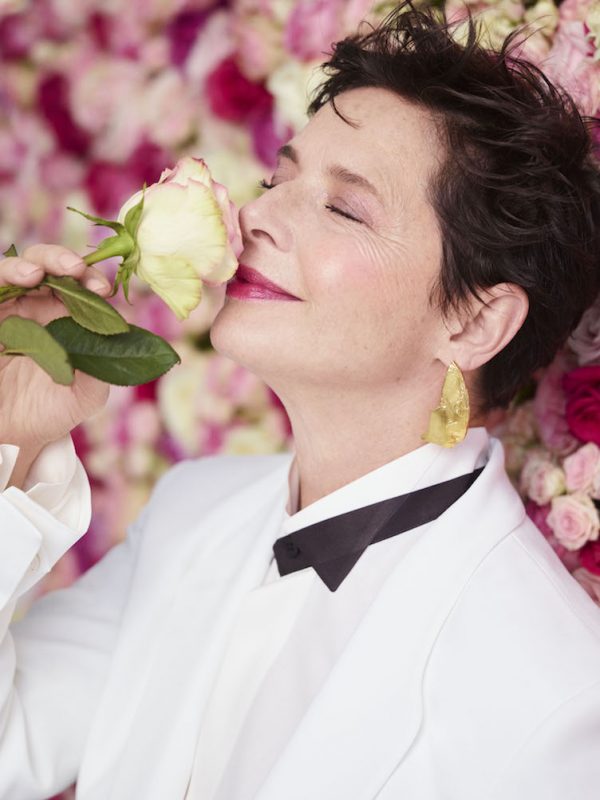 Photo Credit: Nico Bustos for LancômeLet’s talk about Sex & Consequences. Can you explain what you’re doing, and how the title applies?
Photo Credit: Nico Bustos for LancômeLet’s talk about Sex & Consequences. Can you explain what you’re doing, and how the title applies?
I was in England only in London and Belfast and then when Covid came, my shows were canceled because all the theaters are closed and we cannot travel. So after a while, we had an idea. My agent represents a lot of musicians, and some of the musicians also had to cancel their concerts, but they made half hour concerts from their home, because they wanted to reconnect with their fan base. They became quite popular. My agent said, ‘Maybe it will apply to monologues as well.’ And so Sex and Consequences was a 40-minute show from my house. I live on a farm; run an organic farm where there a lot of animals, especially farm animals, ancient breeds. So I made a show with them talking about science, talking about domestication. Sex and Consequences applied to the fact that evolution works through sex in the sense that it is the passage of the genes that allows a species to adapt, to modify and to evolve. I know the [phrase] “sex and consequences” generally is something your father says — “If you have sex, there will be consequences,” but I used it because we all heard it when we were little girls, but I has a big implication. One of them is that, we always talk about evolution. We talk the survival of the fittest, but nowadays they also talk about the survival of the friendliest. If you select less aggressive animals, you create domestic stock and the domestic stock is not endangered, but all have some of the same common characteristics. For example, goats can have patches. This doesn’t exist much in the wild. So there are other things that can be linked physically with the consequences of having sex among nicer individuals. The show was about that, it was a comical take. I have a puppet that I call my husband, that I maneuver and I have a dialogue with [it]. Of course, it’s a puppet and doesn’t have a face.
Are you enjoying doing this from your home as opposed to traveling?
I mean first of all, I liked it because the hardest part of Covid is not so much to be home, but it’s not to engage your brain. I mean, work has challenges — our brain, our thinking, our problem-solving — and so when there is less work, yes, you can read interesting books, you can watch films, you can take courses — and I’ve done all that — but it’s not the same. I started to miss work ,and I started to miss imagining talking to an audience and communicating with an audience. I have to say that, for the six weeks that it took me to write it, promote it, put it together and doing it, it felt like normal. I did like it a lot because I didn’t have to travel that much. I do mind traveling. I mean you have to have be a little bit nomadic to be an actor, but the demand of traveling had become very, very enormous. I don’t think actors before this generation had that same demand, you know, to fly from Los Angeles to London — which is a 12 hour flight — to attend one premiere and just maybe do the red carpet. That’s a demand that we have to apply but it’s hard, because it’s a lot of traveling, a lot of preparation to just walk a carpet which isn’t really acting, and then you’re alone in the hotel and you might go from one place to the other, especially when you perform monologues. I do have two technicians with me, but I don’t I don’t have other actors or a director. So touring was great, especially if I go to cities that I like and I have friends, but sometimes it’s hard because you’re on the road for six months and you’re very alone. You know, you work three, four hours a day in the theater maybe five, in rehearsals and but that’s about it, isn’t it? The day is 24 hours.
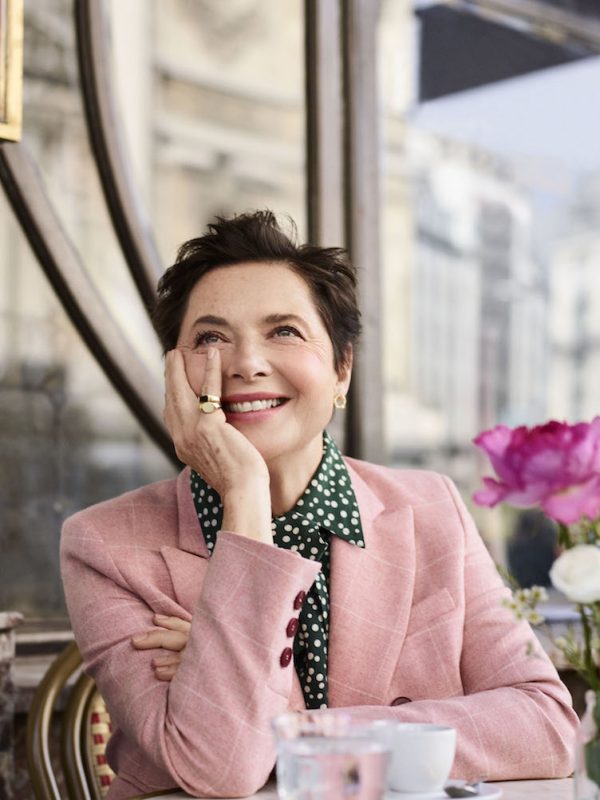 Photo Credit: Nico Bustos for Lancôme
Photo Credit: Nico Bustos for Lancôme
So this has been a nice change for you?
It is! I like it. I mean, I don’t know if or when we are all going to go back to normal life what takes. I did a lot of interviews with Zoom and somehow, they were better. I don’t know why. Maybe because it’s on my computer, and the screen is bigger, and I can sit, I have light — you know, a little Zoom corner. I do several Zoom meetings with my accountant or my lawyer or with Lancôme; I even have a friend who is a therapist who says a lot of his client like Zoom therapy…. So, I think that some of the things will stay and I hope that Zoom or whatever virtual performances to a certain extent would stay. We can do poetry reading, we can do light things that are very easy and you don’t have to have an audience every time to fill a theater that it is from three hundred to two thousand seats. It’s an enormous amount of work, but maybe if you do it virtually, you can satisfy your juices as a performer and also as a viewer. So, I hope that some would stay so that we can continue to work and communicate with our audience and the people that are interested in what I am interested in with lesser machinery effort. I do hope the virtual shows stay.
It sounds like with this new world that we’re living in but how else have you pivoted during this time?
I live near New York. I live about a hundred kilometers from Manhattan in the country on this farm. In March and April, I came from Paris. I was working in Italy for something for Sky Arts day for a documentary on Pompeii. I was the host. I went to Paris because there was a retrospective of my work at the Cinematheque. So then it was clear that this was going to be severe. It was actually a Lancôme executive who called me and said, ‘The borders are going to be closed.’ It was the first time I had heard it. I thought, ‘This could never happen to us. Maybe in China it’s possible because they’ve been under a dictatorship, so they can’t obey. How can you close a city?’ She said, ‘No, it’s going to be just as bad here.’ I came back home and it was really, really bad in New York in March and April. I felt very, very lucky to be in the country both my children came and stayed with me —everybody had his own place. It felt like it was the end of the world, but we were in our own little bubble. We were at the farm, so we planted plants, we had the animals giving birth, t. So we had the animal may have given birth, the eggs came back. The summer wasn’t too bad; we had the beach, we could go for walks.
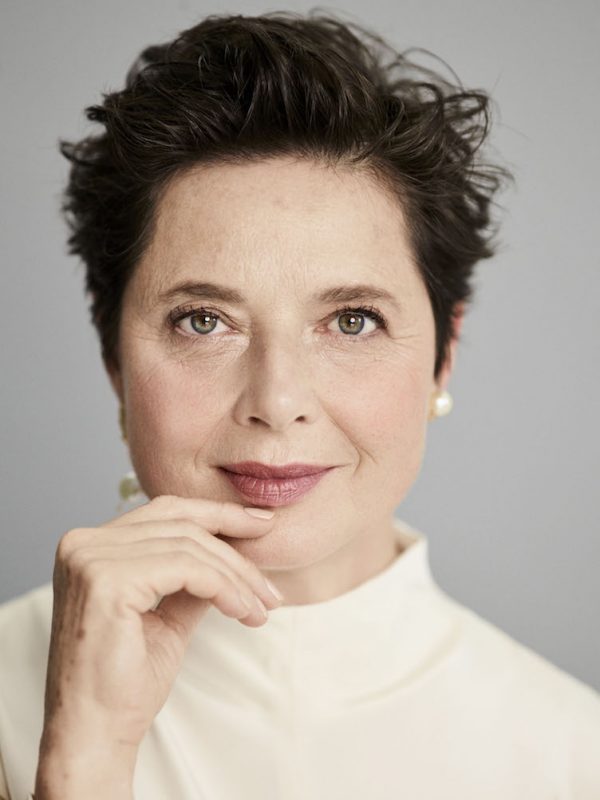 Photo Credit: Nico Bustos for Lancôme
Photo Credit: Nico Bustos for Lancôme
Beauty is a little bit harder, no?
I became more involved in makeup during the lockdown, strangely enough. When I work, I generally get up in the morning and I have a photo shoot or I have to go to the set or I have to give an interview and generally I go with no makeup on, or really minimal makeup, because when I get there, there is a makeup artist. I have to look like the character I play, or if there’s an interview for television. I have done more makeup now because I don’t have a makeup artist! I cut my own hair and do my own makeup. I do my makeup daily, which didn’t happen before Covid.
Do you have any beauty hacks you can share?
I mean, I’m 68 and I’ve worked since I was 25, so I don’t think that I’ve discovered something new. But I do use many more creams. I think there is something comforting in taking a bubble bath. I travel light when I’m on the road [and don’t often bring it], so I’m doing more bubble baths, more masks now, because I have more time. Somehow the pampering has become bigger, even to give a sense of comfort or pleasure during the day. We do have a light at the end of the tunnel, but it’s going to be a difficult six months.
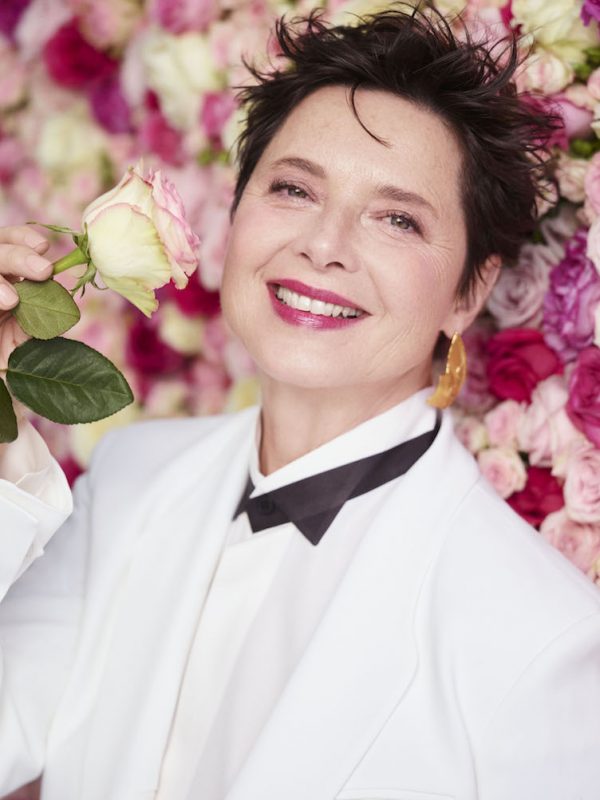 Photo Credit: Nico Bustos for Lancôme
Photo Credit: Nico Bustos for Lancôme
It’s kind of unbelievable that you’re 68. How do you get to that point of feeling confident in your own skin? And how do you keep that skin so perfect?
I have to say that I am not obsessed about wanting to look younger. You know, I think that if I did something right in my life, it was to live each chapter of my life and being able to say, ‘Okay I loved modeling, but modeling is not available anymore because I’m older’ and yes, I work with Lancôme but less as a model for a regular magazine. They don’t hire me anymore, or if they do, it’s me as a person, as a celebrity. It’s not that photo shoots are over, but that photo shoot where you’re not yourself, but a fashion invention, which was so great. That is gone and I miss that work a lot, but then I was able to act, and after acting to go back to university and study animals. So I think that I was able to not be nostalgic, and I’ve seen a lot of friends of mine remaining nostalgic about a look that they had when they were in their 20s or 30s, or a job that they had, or a responsibility that they had that has gone. I’m lucky to have a lot of curiosities and a lot of things that I like, so if one door closes, I open another one. And this is the other thing I’m going to do now. I was just thinking I don’t feel that my brain is engaged enough now, especially after the show. I’ve been booked a little bit here and there but not that much, so I’m looking forward to do these performances. But there isn’t much to do: the show has been written, the costumes are all made, because I did everything myself. So I thought, ‘Well, maybe I should take a class in something so that I’m engaged mentally. do more of engaging mentally then spend much time trying to look young. I don’t do anything to look young, though I do like to take care of myself. I like creams, I like to pamper myself, I like masks but it’s a pleasure. I don’t do it with like, ‘Oh, this is going to make me younger. I don’t have that obsession.
So you’re a big believer in aging gracefully?
I don’t know what it means, aging gracefully. What does it mean, that you don’t show your wrinkles? I haven’t done anything not to show my wrinkles. When we age, maybe gracefully maybe means to accept it. If aging gracefully means to hide it, I don’t hide it. I think that hiding it is ageism, and I think women have been already victimized by so much discrimination. ‘You’re not good enough to do this’ to ‘you’re not attractive anymore, you’re not desirable anymore.’ It’s not that it doesn’t exist, but I don’t want to foster it.
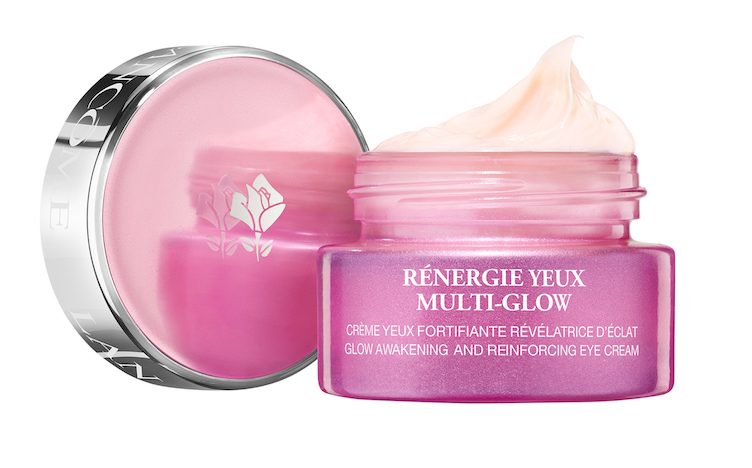 Photo Credit: Lancome
Photo Credit: Lancome
You have a very long-standing relationship with Lancôme. Have your favorite products changed as a result of the pandemic?
Because now I’m staying put, I’m using many things that I haven’t used in the past, like the soap, the body cream, things that are difficult to carry in luggage, because they’re heavy and [don’t fit in your hand luggage]. When you’re traveling every day, you travel with hand luggage only so that you can speed up the process of going to the hotel instead of waiting on line to get on the plane, in security. So I’m more regularly using the products, though [I’m quite] familiar with them because I’ve been working for Lancôme since 1982. Not constantly – there were many years of interruption. Lancôme let me go, although we were very successful in the advertisement campaigns that we had done — I was part of that success and the marketing researched was positive, women liked me and all that. The executives decided to let me go. When I asked them their rationale, they said a woman’s dream is to be young, and a woman in her 40s cannot represent the dream. An advertisement represents a dream, not reality. I wasn’t sure that that was the dream, frankly. I do think that that what contributed to letting me go was ageism. I think it was a prejudice, I think it was a tradition. It wasn’t only Lancôme who did it; it was magazines, other campaigns that I did with designers. And it’s still happening, but still to a lesser extent. Ultimately ,Lancôme is a service industry and responds to what the client wants even in terms of the portrayal of women. I think women, nowadays, they want to be celebrated for who they are and what they did and not for their looks or their weight or having blue eyes. You can see the advertisements at Lancôme also changing. They have women that have huge careers, whether it’s Julia Roberts or Penelope Cruz or Lupita Nyong’o. I’m saying these names because all of a sudden, we have colored women [in the campaigns]; you don’t have only white, blond women as the wish, because now they know that black women don’t dream to be white, they want to be black — and black is beautiful. So Lancôme also responds to the demand that the society and women evolved, and their advertisements reflect that. That’s why also the I think they asked me to come back when I was in my 60s; I might have worked with them now for about five years. I was stupefied, you know, because [I worked with them] for 23 years. When I was let go, I was hurt and a lot of people protested. I felt that they were making a mistake. I felt that they didn’t know how to evolve with society, that their decision might have answered something that was in society, but society was changing, and letting me go was not addressing that new need. In fact, they did get a lot of flack, I have to say, but nothing happened for 23 years. When Francoise Lehmann, who is the new CEO, called me, I said, ‘I have to meet with you, because I don’t understand it. I mean if you want women who are older, you can get Helen Mirren, you can get Meryl Streep. If you do get me back, we dig up a story that has been negative, and I know that a big corporation there was very careful about not having any negative stories.’ So I met with her. She didn’t even have to talk; I just knew that world is changed. I was really frankly used to have middle-aged men as executives coming and telling me what they liked in women, how they were seduced. Everything was about seduction, you know, because that’s what they understood. I’m not saying that using makeup is not a tool of seduction, but he’s not only a tool of seduction. It’s also a game for women. I do more makeup when I go out with my girlfriends then when I go out with a man because it’s more fun. Men don’t understand it so well.
So, instead of having an old, middle-class chubby man, there was this motorcycle that arrived in front of the hotel where we were at the restaurant. A cascade of blond hair came out [from under her helmet] and I just said, ‘Is this the executive at Lancôme now? Wow! A lot has changed in twenty years.’ Francoise told me that she was at Lancôme 23 years ago when I was let go, and that she thought it was a very big mistake to let me go, but then she was just starting her career. She didn’t have a voice. She said, ‘All my life I thought it was a great mistake and a very big injustice. Throughout the years when we read the marketing research that Lancôme did, your name often came up in these terms, the same feelings that I’ve had. So yes, I want to have women of all colors, of every age, because this is our client and I want everybody to be represented. But you can represent this story better than anybody else, because we had that story. I want to make the story right.’ That was very touching to me, that she was taking the risk. I said, ‘Well, maybe you’re right. Maybe I should be the one, because we need to underline that society has changed.’ I love working with Lancôme, and there are a lot of women now in executive positions. There is a way of talking, a way of creating creams. For example, I am assigned to do Renergie Glow. I launched it 30 years ago. It’s changed in many ways, for day, for night, with sun protection, without. It was for me — I was 68 — I said, ‘I don’t want it to be an anti-age cream, because if we insist at 60 years old that they have to be looking younger, then we insist on a pattern of discrimination. Glow is great because it means glamour, and glamour, everybody can have. Glamour, elegance, sophistication, that’s what I want to promote, and that’s our game. I don’t want to promote anti-aging.’ So, finally I get the final packaging and here it comes. There I read, very small ‘anti-age.’ I called Francoise. She was on a train. I said, ‘It’s written anti-age!’ She said, ‘But it’s written small. Glow is written big.’ We had such a long discussion. She said, ‘Isabella, you have an opinion, but we are working for everybody. Anti-age nowadays doesn’t mean that you want to be younger. It became something to mean healthier skin. I agree with you that we are promoting, glamour, happiness, playfulness.’ I said, ‘You are right.’ Things have changed a lot.
What to you is the greatest luxury in life and why?
The greatest luxury in life is to be free, but it takes a lot of courage. Especially for us women, we always belittle ourselves, we always feel we are not good enough. I think that freedom to do what you want, and do it slowly and with what you understand, step-by-step, you will get there. Just look at me; I’m back at Lancôme. Step-by-step. I mean, I feel like I’m benefiting from an incredible change in society, and I’m symbolizing it but it’s a very enormous conquest for a lot of for women.

